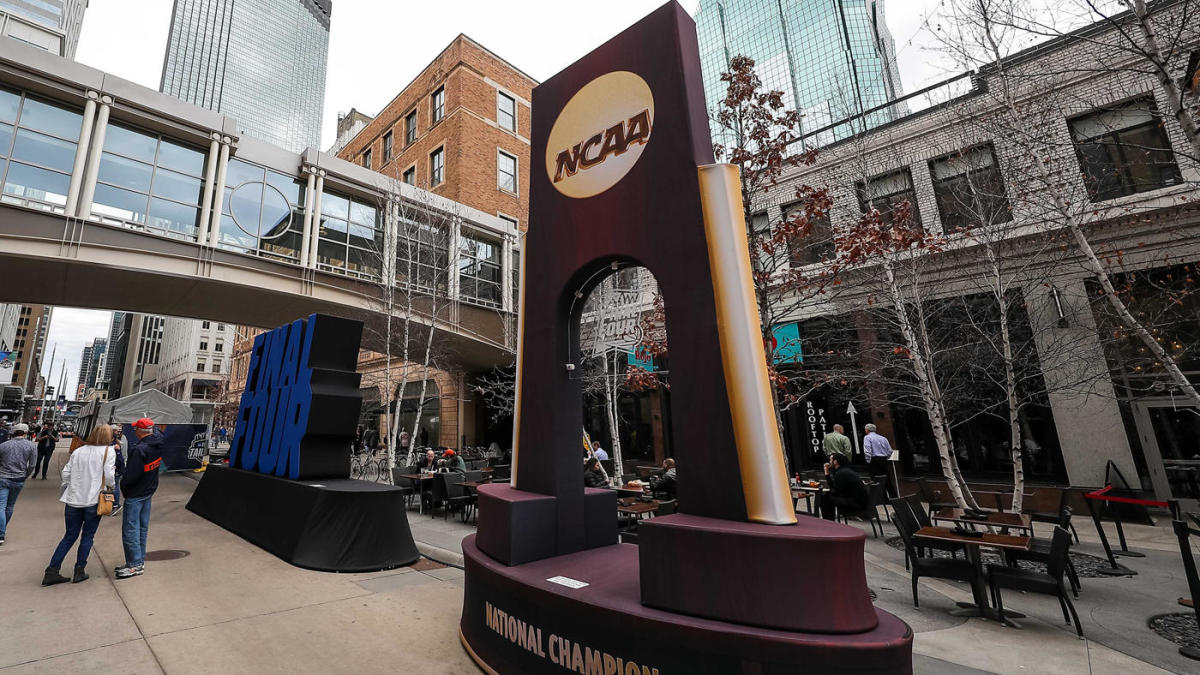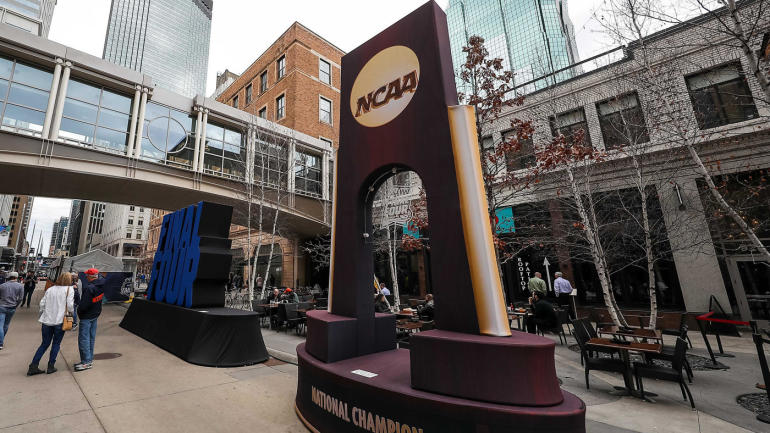
NCAA amateurism is effectively dead, and the association itself may not be far behind
The tenet upon which the NCAA's based is fading, and its power is quickly slipping away
 www.cbssports.com
www.cbssports.com

NCAA amateurism is effectively dead, and the association itself may not be far behind
The tenet upon which the NCAA's based is fading, and its power is quickly slipping away
The tenet upon which the NCAA's based is fading, and its power is quickly slipping away
By Dennis Dodd

NCAA amateurism is dead. Whatever you thought the moving target that was the "collegiate model" is gone. The date for the dearly departed will go down as June 21, 2021, but really, the exit from this world was years in the making.
It's not just that amateurism is dead. The NCAA that strangled it might not be far behind.
No rational human could recognize the association's stance as either amateur or fair. Not with athletes working an average of 50 hours a week on their "job" (per a recent Pac-12 study). Not with the NCAA having to pass legislation to ensure practices were not held starting midnight or before 6 a.m. That needing to be legislated meant that some coach, somewhere, was actually practicing in that window.
On Monday, the U.S. Supreme Court could no longer ignore the abuse.
In a relatively minor legal contention, it upheld a lower-court decision that will allow athletes to receive such education-related items as laptops, paid internships and post-graduate opportunities.
The NCAA was worried about recruiting advantages. The Supreme Court was concerned with fairness, violations of the nation's 131-year-old antitrust law and NCAA power than had become intolerable.
"The NCAA is not above the law," wrote Justice Brett Kavanaugh in a concurring opinion following the unanimous 9-0 vote.
Somebody had to say it.
Truth is there are no minor legal contentions with the NCAA. It exists to be sued these days. It chose to go all the way to the Supreme Court over laptops because it can, because powerful people like to stay in power. No matter the consequences.
Monday, the NCAA got slapped down in perhaps its biggest legal defeat. Think about the implications: The association did not prevail in the NCAA v. Alston appeal despite a conservative majority court that included three conservative judges appointed by the previous administration. In fact, the NCAA didn't get a single judge to side with it. The 9-0 whitewash in favor of Alston was pro-player, pro-labor and probably overdue.
It was not predicted by any legal experts analyzing the case. To put it in betting terms, who would have taken Shawne Alston laying the nine (judges)?
Monday, the NCAA was certainly marginalized. It is now somewhat of a bystander as history parades by.
There are a only handful of things the NCAA still controls, namely eligibility and enforcement. And you'll find plenty of complaints from membership regarding those subjects. There is arguably only one thing it still does well -- throw a heck of a party each March known as the NCAA Tournament.
Everything else was laid bare by Monday's decision.
There is no more amateurism because … what was it, anyway? Cost of attendance was handed out to athletes, not normal students. Bowl gifts (capped at $550) are basically pay for play. We're down to arguing semantics and whether five figures can become six figures in the age of name, image and likeness.
Now, there are few roadblocks as to what athletes can earn. Without Congressional help in NIL, whatever the NCAA installs in its legislation will be subject to similar antitrust challenges as Alston v. NCAA
There's no sign that help is coming anytime soon, which speaks to the NCAA's bad planning as much as its desperation.
Predictably, NIL has become politicized in Congress much like any other bill. While this is great for the fair-market earning power of the college athlete, it's dangerous for the NCAA and the membership that allowed it to happen, starting with yet another WTF?! extension for president Mark Emmert.
If this was the real world, the NCAA would be out of business. The only thing tethering it to any kind of logical business model is March Madness. Just don't deny the athletes their share while the association is taking in $1 billion per year.
"The NCAA's business model would be flatly illegal in almost any other industry in America," Justice Kavanaugh said. "It is highly questionable whether the NCAA and its member colleges can justify not paying student athletes a fair share of the revenues."
That opens the door to massive financial gains for those athletes in the future. Justice Kavanaugh even addressed the potential impact on minor sports and Title IX. Athletes could collectively bargain those benefits. Amazing. A Supreme Court justice just gave the NCAA a roadmap out of this mess.
Whether the advice is taken remains to be seen.
One prominent Power Five source characterized Monday's decision as "shock and awe" suggesting it "scraps the entire amateurism model as we know it." The challenge now, the source said, is finding an NCAA decision in this space that is not a walking, talking antitrust violation.
You know what's coming, right? NIL is going to be a monster the NCAA can't control. It certainly can't hint at capping compensation. It is begging Congress for legal protection not only on NIL but for any athlete in the past who want to sue. That's a huge ask for an organization that just got blown out in the Supreme Court.
Unless there is that Congressional intervention, the NCAA is a fly on the wall to antiquity. And if Congress steps in, the NCAA will be even further marginalized. The federal government will be the de facto arbiter of college sports.
"I think it's terminal. I really do," another prominent Power Five source told CBS Sports in March regarding the current set up.
The NCAA had to know this day was coming. Monday's loss in court is at least its biggest since the landmark NCAA v. Board of Regents decision in 1984. The Supreme Court deregulated college football television in that one. That eventually created a pile of money so large it got the attention of the lawyers and the 30% fees they command.
So here we are, arguing over the same pile of money the athletes can't get their hands on. Soon, that will change. That's good for the athletes who have been marginalized themselves.
"When you think about this ruling and the upcoming NIL, now we're starting to see the onion being really peeled back on the power of the NCAA," said Tim Derdenger, associate professor of marketing and strategy at Carnegie Mellon. "It's transformative for the student-athlete."
The NCAA's transformation has already begun. The Supreme Court saw to it.
